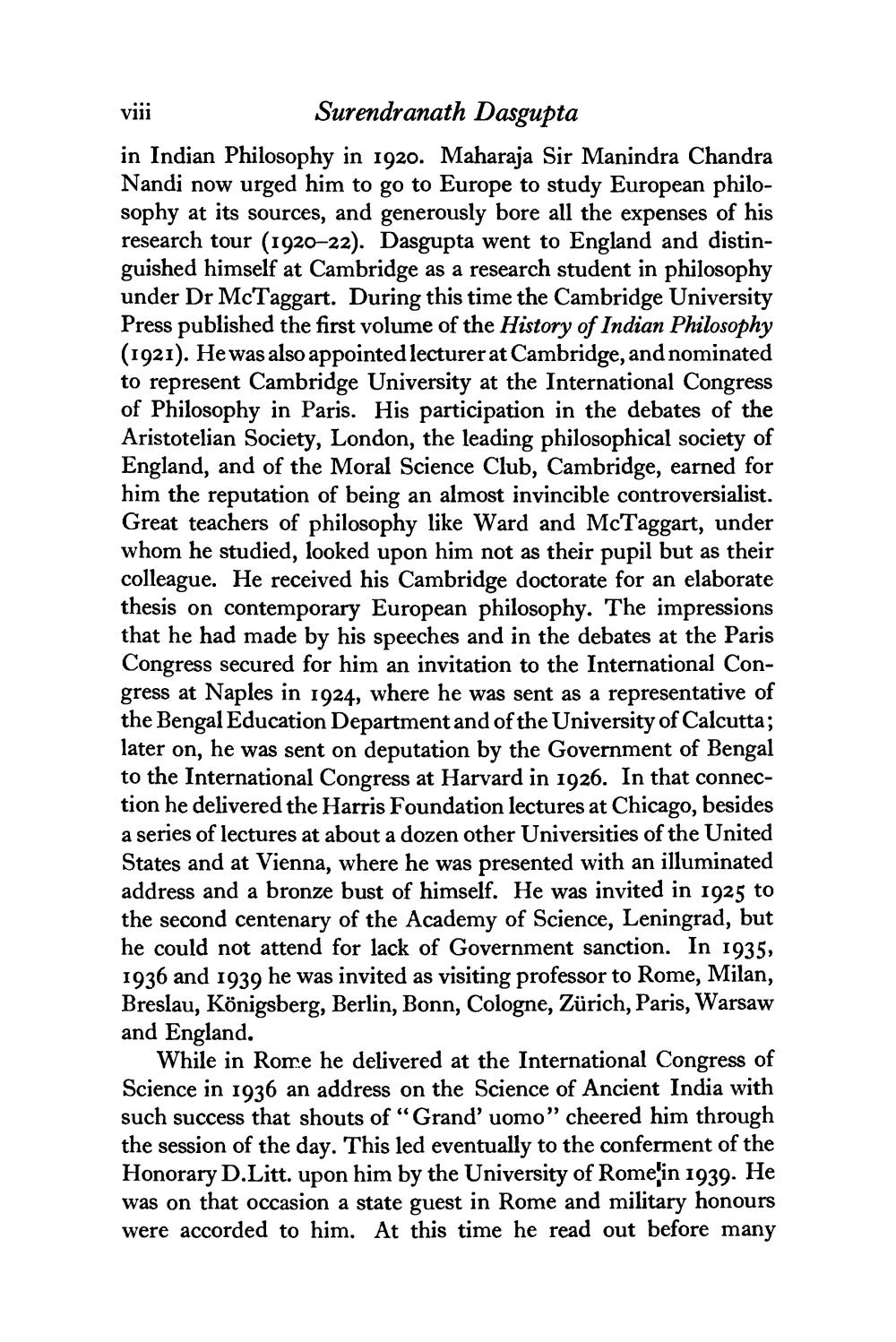________________
viji
Surendranath Dasgupta in Indian Philosophy in 1920. Maharaja Sir Manindra Chandra Nandi now urged him to go to Europe to study European philosophy at its sources, and generously bore all the expenses of his research tour (1920–22). Dasgupta went to England and distinguished himself at Cambridge as a research student in philosophy under Dr McTaggart. During this time the Cambridge University Press published the first volume of the History of Indian Philosophy (1921). He was also appointed lecturer at Cambridge, and nominated to represent Cambridge University at the International Congress of Philosophy in Paris. His participation in the debates of the Aristotelian Society, London, the leading philosophical society of England, and of the Moral Science Club, Cambridge, earned for him the reputation of being an almost invincible controversialist. Great teachers of philosophy like Ward and McTaggart, under whom he studied, looked upon him not as their pupil but as their colleague. He received his Cambridge doctorate for an elaborate thesis on contemporary European philosophy. The impressions that he had made by his speeches and in the debates at the Paris Congress secured for him an invitation to the International Con
ress at Naples in 1924, where he was sent as a representative of the Bengal Education Department and of the University of Calcutta; later on, he was sent on deputation by the Government of Bengal to the International Congress at Harvard in 1926. In that connection he delivered the Harris Foundation lectures at Chicago, besides a series of lectures at about a dozen other Universities of the United States and at Vienna, where he was presented with an illuminated address and a bronze bust of himself. He was invited in 1925 to the second centenary of the Academy of Science, Leningrad, but he could not attend for lack of Government sanction. In 1935, 1936 and 1939 he was invited as visiting professor to Rome, Milan, Breslau, Königsberg, Berlin, Bonn, Cologne, Zürich, Paris, Warsaw and England.
While in Rome he delivered at the International Congress of Science in 1936 an address on the Science of Ancient India with such success that shouts of “Grand' uomo" cheered him through the session of the day. This led eventually to the conferment of the Honorary D.Litt. upon him by the University of Rome in 1939. He was on that occasion a state guest in Rome and military honours were accorded to him. At this time he read out before many




